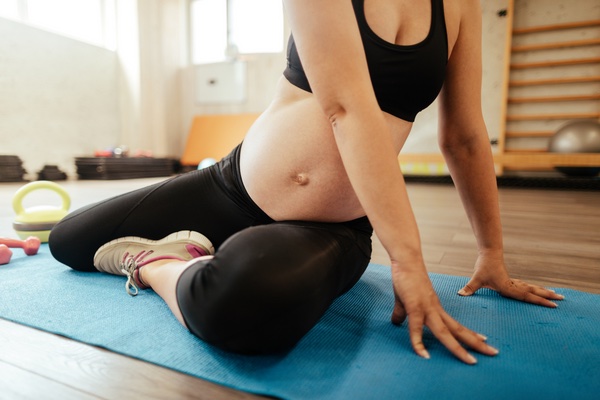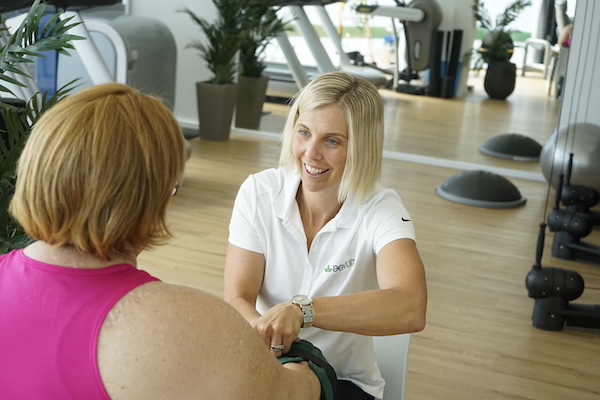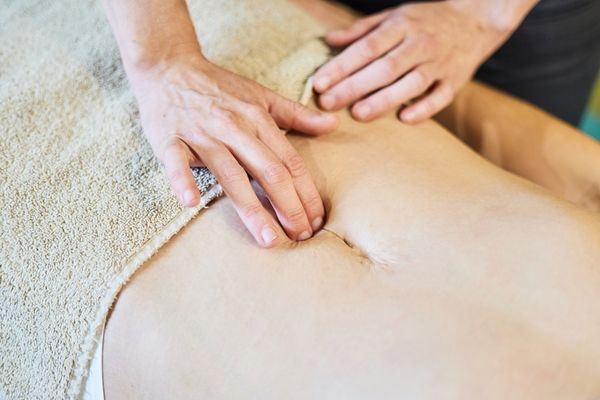“When can I start running again?” is a question the team at Aevum Physiotherapy get asked all the time by new mums and expectant mums.
If you’re an avid runner and keen to put your running shoes back on post birth, this is worth a read.
While it is usually safe to return to running after having a baby, there are specific things a woman should do to ensure her body is ready.
We sat down with Erin from Aevum Physiotherapy and asked her some important questions before hitting the pavement again.

Erin – Physiotherapist
How long should you wait to start running after having a baby?
Evidence has shown that postnatal women should wait at least 12 weeks before planning a return to running. Some women who experience the following signs or symptoms prior to, or after attempting a return to running, may need to wait 6 months:
- Heaviness/dragging in the pelvic area
- Leaking urine or inability to control bowel movements
- Doming of abdomen or noticeable gap along the midline of your abdominal wall (this may indicate Diastasis Rectus Abdominis)
- Pelvic or lower back pain
- Ongoing or increased blood loss that is not linked to your monthly cycle
If you experience any of the above symptoms, it’s essential to consult with your women’s health physiotherapist for a thorough assessment. You will then be given the appropriate treatment and exercise plan to get you safely back into running.
Why do you have to wait to run after having a baby?
Running is a high impact sport that places a lot of demand on your body. High impact exercise has a 5 times increased risk of pelvic floor dysfunction compared to low impact exercise. To be run-ready, postnatal women need adequate time to heal and regain strength, particularly in the abdominal and pelvic floor muscles after pregnancy and delivery.
What happens if you run too soon?
Returning to running too soon after pregnancy and childbirth significantly increases your chance of pelvic floor dysfunction. The most common types of pelvic floor dysfunction are urinary incontinence, abdominal separation, pelvic organ prolapse and sexual dysfunction. All of these conditions can require long-term medical care and therefore delay your return to running even further.
What exercises or life choices can you make during pregnancy that will assist you in returning to exercise postpartum?
It is important that you maintain a healthy lifestyle during pregnancy. Continuing your current level of exercise during the first 13 weeks of pregnancy is considered safe and best practice for a healthy pregnancy. After the first trimester, you may need to slowly decrease the level of intensity of your exercise depending on how the physical changes of pregnancy are starting to impact your body. For low risk pregnancy, 30 minutes of low to moderate intensity exercises is recommended daily.
Additionally, specific pelvic floor, abdominal and gluteal strengthening exercises are a great way to get your body ready for childbirth and will help you to return to exercise quicker postpartum.

What are some exercises you can do in the period between having a baby and being able to start training properly?
It is recommended that a low impact exercise timeline be followed within the first 3 months of the postnatal period before commencing higher impact exercises such as running.
Here are some examples of exercise progression for the early postnatal period (0-3 months):
Week 0-2:
- Pelvic floor muscle exercises targeting strength and endurance
- Basic core exercises e.g. pelvic tilt, bent-knee drop out, side lying leg raises
- Walking (for cardiovascular exercise)
Week 2-4:
- Progress walking/pelvic floor muscle/core rehab
- Introductions of squats, lunges and bridging
Week 4-6:
- Low impact exercise e.g. static cycling or cross-trainer
Week 6-8:
- Power walking
- Increased duration/intensity of low impact exercise
- Deadlift techniques beginning at light weights (no more than the weight of the baby in a car seat e.g. 15kg)
- Resistance work during core and lower limb rehab
Week 8-12:
- Swimming (if there is adequate wound healing)
- Spinning (if comfortable sitting on a spinning saddle)
- Gradual load progression on strengthening exercises
Week 12+:
- Progressive return to running program e.g. Couch to 5km
When should you see a physio/women’s health specialist after having a baby before commencing exercise and the benefit?
It is best to see a women’s health physiotherapist around 4-6 weeks postnatal for an assessment of your pelvic floor and abdominal wall function before commencing low impact exercise.

Will running affect your milk supply?
Research has proven that moderate to vigorous exercise during lactation does not affect the quantity or composition of breast milk or infant growth. However, it is important to consider the timing of feeds around running to ensure that the breasts are not overly full or likely to become uncomfortable during the run. It is also important to consider adequate hydration and the degree of exertion when a mother returns to running as dehydration can impact the supply of milk.
Are there any other tips/tricks you have for a new mum getting back into exercise and running?
Having the correct sportswear when returning to exercise postpartum is important.
Exercise attire which supports the pelvic floor and lumbopelvic area (you can be fitted for specific postnatal compression tights) will reduce the demands placed on the pelvic floor during exercise.
You may benefit from wearing a personally fitted sports bra that offers support rather than compression as this provides significantly increased breast and bra comfort during exercise.
Consideration should also be made to footwear. Shoe size can alter permanently with pregnancy and therefore footwear worn previously may no longer be appropriate once you return to exercise postpartum.
If you are pre or postnatal and want to ensure you have the right tools and information before starting back running, make an appointment with the team at Aevum Physiotherapy.

AEVUM PHYSIOTHERAPY
Address: Suite 11/550 Princes Hwy, Kirrawee
Website: https://www.aevumhealth.com.au/
Phone: 8544 3231

Did you know!
“A new study states that pregnant women reach the same peak levels of endurance as those competing in an Ironman — so the physical intensity of pregnancy is like running a 40-week marathon!”

